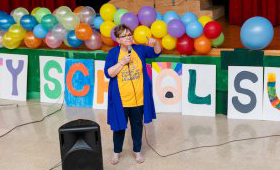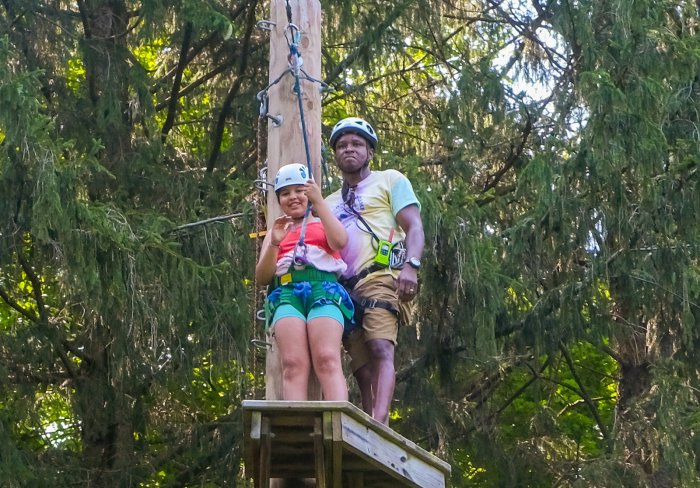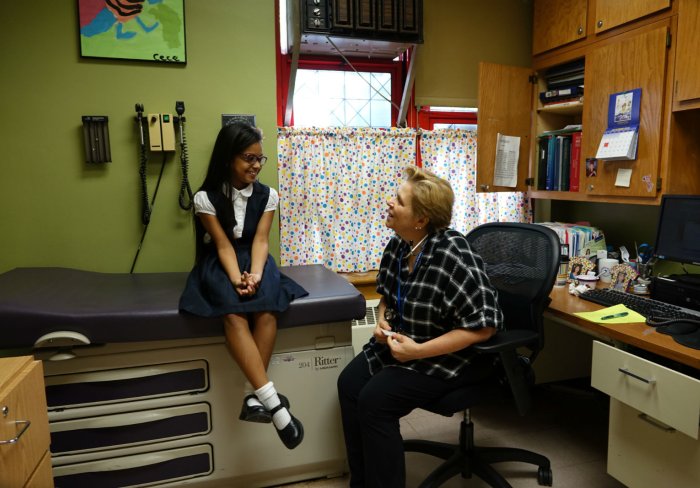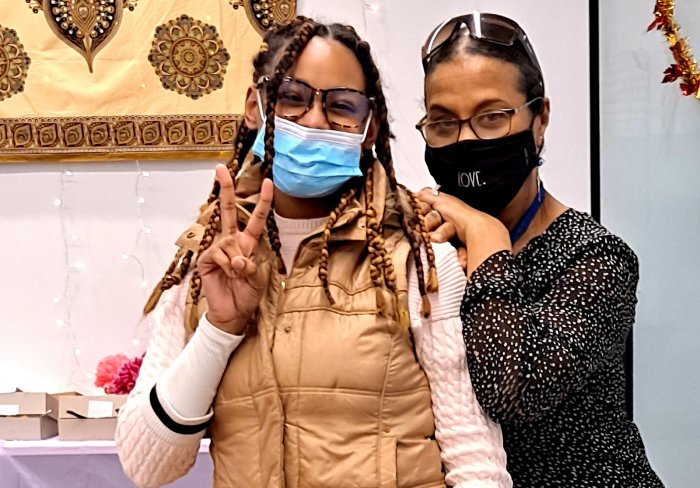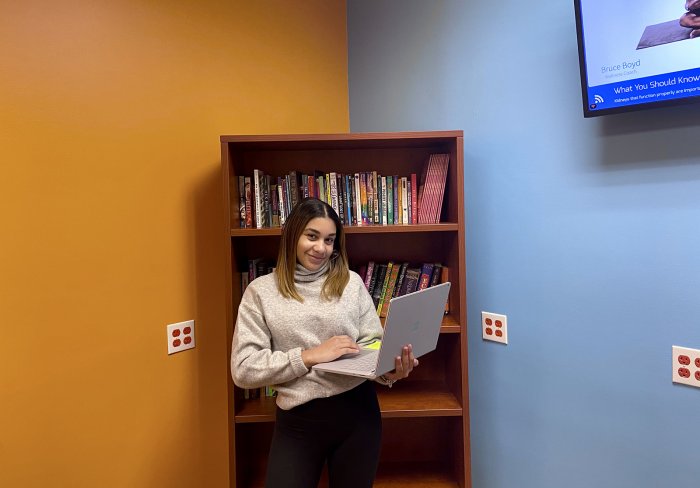“Do you understand the fury of a 4-year-old denied his promised trip to the playground,” a parent asks a local police officer.
A group of Children’s Aid parents and Neighborhood Coordination Officers (NCOs) were meeting in Washington Heights as part of an initiative by our Early Childhood staff. The parents had expressed frustration that the police are quick to hand out tickets but do little to respond to community concerns such as drug dealing in public places. Taking a group of children to the park, only to leave almost immediately because there is illegal activity taking place, is a common experience.
The officer – who had broken the ice by conducting the Q&A in Spanish – gave out his personal cell phone number and offered to procure an escort for trips to the park.
Community Needs Assessment research conducted by Children’s Aid this past year in each of our four service regions found none of our families feel safe in their neighborhoods. They feel disconnected from their local police and don’t see them as accountable.
Understanding parents’ stress when they feel their children are not safe, the staff of the Children’s Aid Early Childhood Program facilitated community meetings with police.
“We wanted parents to better understand law enforcement in their neighborhoods and we wanted to empower them to address their concerns for their children’s safety,” said Adriana Alba, Partnership Manager, Early Childhood Division.
Children’s Aid family advocates encouraged parents to attend the first meeting in Washington Heights. They knew it was a big ask – many of the parents are undocumented immigrants. But, in a testament to the bonds between Children’s Aid staff and our families, they came.
“It was packed,” said Adriana. “We couldn’t believe how many parents showed up.”
Parents discussed their concerns about everything from sexual predators to domestic violence. Finally, some parents admitted they are undocumented and confided they don’t know who they can trust. The officers assured families it is not their job to check immigration status but to protect the community.
Once the parents were convinced there was goodwill on the part of the NYPD, Children’s Aid staff invited the officers to our schools to meet the children. There were mixed reactions. “We knew it would be a challenge,” said Adriana. “But we though if the parents signal that these are friends, the children will know the officers as friends.”
“This is a first step in re-directing relationships between our families and the police,” said Moria Cappio, VP of Early Childhood Programs.
Parent said they like the idea of the interaction between the children and the police. They want their children to feel comfortable asking a police officer if they need protection and if they’ve known police since they were very young it will be easier for them.
Throughout the year, Children’s Aid will continue to facilitate these meetings at each of our 10 sites. “Like everything at Children’s Aid, we will evaluate this outreach and use what we learn to design the next phase,” said Moria.

